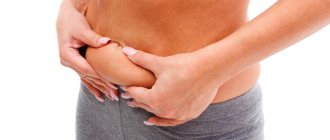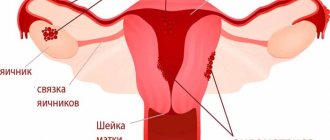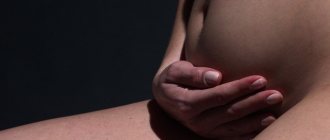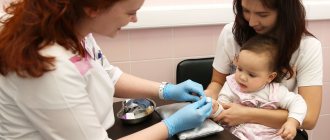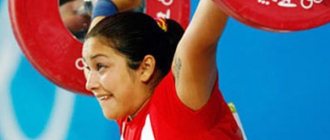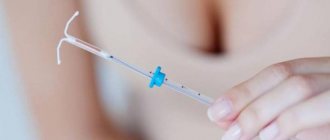The benefits of vitamins for women after childbirth
Pregnancy causes a restructuring of the entire maternal body to ensure the favorable development of the embryo and fetus. To change the nature of the functioning of internal organs, a significant amount of various useful compounds is required that can accelerate the course of biochemical processes.
It is known that after giving birth, nursing women are prohibited from consuming many foods that contain beneficial substances. Adequate intake of essential substances into the body after childbirth is also required for women who are not breastfeeding.
A balanced diet cannot always satisfy the female body’s need for useful components. The use of special complexes allows:
- normalize hormonal levels;
- restore immunity;
- improve the quantity and quality of breast milk.
Important! Taking vitamins after childbirth has a positive effect on the nervous system.
The need for vitamins
Immediately after childbirth, a woman’s lactation mechanisms are launched, and the body enters a new phase - breastfeeding. This period is quite important for the baby, since all its internal structures are adjusted to autonomous functioning. The only food for the baby in the first months will be mother's milk, which will provide him with the necessary complex of microelements and vitamin components. Therefore, the mother is simply obliged to eat fully and rationally so that the baby develops fully and gains weight.
In practice it often turns out quite differently. Since a woman is busy caring for her baby, she often does not have enough time for herself and does not have time to eat properly. Therefore, approximately 80% of new mothers have an acute deficiency of components useful for the baby and mother. As a result, the mother develops health problems, she notices hair loss, and her teeth begin to crumble. This also affects the baby’s health – he may not develop quickly enough, often gets sick, etc.
When should you take vitamins after childbirth for recovery?
Before taking vitamin complexes, it is advisable to perform a diagnosis of the content of components in the blood. This will not only avoid hypervitaminosis, but also select the optimal doses of nutrients.
Vitamin deficiency can be suspected based on the following pathological conditions:
- weight gain due to metabolic disorders;
- depression due to a malfunction of the nervous system;
- deterioration of the condition of nails, hair and skin;
- pain in the joints and spine;
- anemia as a result of low hemoglobin;
- disruption of the functioning of the digestive tract.
Attention! When breastfeeding, you should choose vitamins that are allowed during lactation.
Vitamins during lactation
The baby draws valuable microelements from mother's milk. If your baby is not gaining weight, often spits up, sleeps poorly and behaves restlessly, you need to pay attention to his nutrition. A nursing mother should include healthy foods in her diet and additionally take multivitamin complexes. Women need vitamins during lactation for the formation of children's immunity, growth, and improved digestion.
Minisan Multivitamins “Mama”
The drug from Finland is approved for planning pregnancy, pregnancy, and after childbirth. The tablets contain 11 vitamins and 6 minerals. Iron prevents anemia, iodine improves thyroid function. The multivitamin complex doubles the volume of breast milk, making it nutritious and balanced for the baby. Dietary supplements are contraindicated in hypersensitivity reactions. There are no side effects. Price 90 tablets – 900-1000 rub.
Articles on the topic
- Postpartum amenorrhea
- 10 main vitamins for nursing mothers - a review of the best drugs with instructions and prices
- Postpartum depression - signs, forms and duration, how to cope on your own, complications
Femibion "Natalcare II"
New generation vitamins for breastfeeding are produced by the Austrian company Merck KGaA & Co. The dietary supplement has 2 release forms - tablets and capsules. They differ in composition. The tablets contain 10 vitamins and iodine, the capsules contain polyunsaturated acids and vitamin E, as a natural antioxidant. The baby develops fully, the nursing woman’s body quickly recovers. The dietary supplement is not suitable if you are prone to allergies. There are no side effects. Price 60 tablets – 1200 rub.
Elevit "Feeding"
The multivitamin complex is produced in Spain. The soft capsules contain 12 vitamins, Omega-3, lutein, 5 microelements. Zinc and ascorbic acid support immunity, iodine promotes the development of intelligence in a child, iron supports metabolism. Fatty acids are needed for vision and brain development. The dietary supplement is prescribed to lactating women for the entire period of lactation. Elevit is contraindicated in hypersensitivity reactions. Price 30 caps. – 800 rub.
What vitamins to take after childbirth
It is known that after childbirth there is an increased need for certain vitamins:
- Retinol. The component promotes the formation of new cellular elements, is responsible for immunity, and bone tissue regeneration. With a deficiency of retinol, visual acuity may decrease.
- Thiamine. It has a beneficial effect on carbohydrate and fat metabolism, and also strengthens nervous tissue. The substance promotes weight loss after childbirth.
- Riboflavin. The component takes part in hematopoiesis and the formation of liver enzymes.
- Pyridoxine. The substance promotes the absorption of iron and increases hemoglobin levels. A sufficient intake of pyridoxine in the body improves the condition of muscle tissue and accelerates the relief of fatigue.
- Folic acid. The vitamin is involved in the production of norepinephrine and serotonin, which are responsible for good mood and performance. Folic acid also improves metabolic processes and promotes the formation of new cellular elements.
- Cyanocobalamin. Controls metabolism, liver function, cholesterol levels, restores hormonal levels after childbirth. The combination of cyanocobalamin and folic acid affects hematopoiesis.
- Ascorbic acid. The substance neutralizes toxins, reduces the risk of allergic reactions, regulates body temperature and the function of the cardiovascular system. Taking ascorbic acid after childbirth helps strengthen the immune system.
- Calciferol. It allows you to significantly improve the condition of bone tissue, as well as blood composition. Thanks to calciferol, it becomes possible to absorb phosphorus and calcium, which increases resistance to colds by strengthening the immune system.
- Tocopherol. Participates in the synthesis of sex steroids, thus stabilizing the functioning of the organs of the reproductive system. Regular intake of tocopherol is necessary for adequate functioning of the heart. The element also affects muscle mass.
- A nicotinic acid. The component is responsible for the blood supply to organs. Its presence in the body has a positive effect on the heart muscle, digestive, nervous, and endocrine systems.
Why is vitamin deficiency dangerous?
If beneficial nutrients enter the body in too small quantities, or are consumed too quickly, a nursing woman may experience various unpleasant symptoms. These symptoms include:
- state of weakness;
- frequent dizziness;
- constant apathy, drowsiness;
- weight loss;
- extreme intolerance, irritability;
- lack of healthy appetite;
- stressful, depressive conditions;
- brittle nails and hair loss.
If such symptoms appear, you should be wary: ideally they should not exist .
It is necessary to remember not only about your health, but also about the baby - if the mother’s body does not have enough nutrition, then the child’s body also starves.
In this case, it is better to quickly consult with a pediatrician and start taking individually selected vitamins.
It is important not to go in the opposite direction - uncontrolled unlimited intake of synthetic supplements will not make you healthier, but will lead to hypervitaminosis, which is no less harmful than vitamin deficiency.
The best vitamins for recovery after childbirth
Not every woman manages to normalize and maintain lactation after childbirth. However, there are no separate vitamins for women after childbirth and breastfeeding. As a rule, vitamin complexes are designed to support the body during pregnancy and the postpartum period.
After childbirth, the female body needs the following components, which are usually included in the composition of the drugs:
- iron;
- iodine;
- calcium;
- zinc;
- phosphorus.
These microelements normalize the functioning of various systems of the female body after childbirth.
Mom is complimentary
Vitamins for mom after childbirth include:
- ascorbic acid;
- retinol;
- group B complex;
- tocopherol;
- magnesium;
- calcium;
- folic, nicotinic acids;
- phosphorus;
- zinc;
- iron.
While taking the drug, you should not take other vitamin complexes at the same time. The dosage recommended in the instructions cannot be exceeded to avoid the occurrence of adverse reactions and hypervitaminosis.
Pregnavite
The complex, used both during pregnancy and after childbirth, contains vitamins and mineral supplements. Its use helps replenish the substances necessary for the health of the mother. According to research results, the drug effectively eliminates the signs of iron deficiency anemia, which is often diagnosed after childbirth.
Important! The advantage of the drug is its good tolerability and the absence of pronounced adverse reactions.
Elevit
The complex is designed to support women's health during pregnancy and after childbirth. The following indications for the use of the complex are given:
- depression;
- deterioration of hair, teeth, skin, nails;
- decreased breast milk production;
- hormonal imbalances.
The drug contains 7 microelements and 12 vitamins necessary for the mother’s body after childbirth. The manufacturer indicates that improvement in well-being occurs 1-2 weeks after taking the vitamin complex.
Vitamins for hair, nails and skin
Find out how long it will take for your figure to recover in my separate post. You can also provide significant assistance to your own beauty with the help of vitamins.
- A, C, D, E and B6 - stimulate cell renewal, improve blood flow, as a result of which the cells do not suffer from oxygen starvation, the complex increases cellular tone and elasticity of the skin.
- B vitamins (1, 2, 9, 12) in combination with nicotinic acid reduce the secretion of sebum, preventing the appearance of acne. This complex strengthens the hair follicles, as a result of which the hair stops splitting, falling out and acquires a healthy shine.
Doctors' opinion
The opinions of experts regarding the need to take vitamin complexes are ambiguous.
Galina Stepanovna Gireeva, 49 years old, Stavropol
I recommend taking vitamins in the autumn-spring period to support the body of a young mother. When purchasing medications, you should pay attention to the naturalness of the composition. In the summer, it is advisable to ensure a sufficient supply of useful components along with fresh vegetables and fruits.
Ilona Viktorovna Khvashchevskaya, 37 years old, Bobruisk
You need to take synthetic vitamins if you have laboratory-proven vitamin deficiencies. An excess of vitamins is just as dangerous as their deficiency. It is necessary, if possible, to balance your diet, get good sleep and walk a lot, and experience positive emotions.
Daily norm
Note that during lactation a woman needs an increased amount of useful nutrients, since she also supplies the child with the necessary resources. Next, we’ll look at what vitamins are best to take during breastfeeding, their daily requirements for the mother, how much can and should you take certain substances.
Vitamin A For a nursing woman, the daily norm is 500 IU. It can be found in all vitamin complexes, and in products such as:
- carrot;
- chicken and quail eggs;
- high-fat butter;
- cow's whole milk.
Vitamin B1 A woman should consume 20 mg of this vitamin per day. The substance can be found in the following products:
- cereals;
- legumes;
- porridge;
- wheat and rye bran.
Vitamin B2 Its norm per day is 2.2 mg. You can find B2 in spinach, fresh apricots, cow's milk and beef liver.
Vitamin B6 The norm of this substance is the same as the previous one - 2.2 mg. A lot of vitamin B6 is found in meat and fish products, in any cabbage, potatoes, and walnuts.
Vitamin B12 You need to consume at least 4 mg of this substance per day. It is contained in:
- cow's milk;
- beef liver;
- sea fish;
- seafood.
Vitamin PP The daily volume of this vitamin for a nursing woman is especially high - 23 mg. The substance is found in buckwheat porridge, meat, offal and cow's milk.
Vitamin C Every day, ascorbic acid should enter the body of a nursing mother in an amount of at least 100 mg. The substance is found in fruits, vegetables, berries and root vegetables.
Vitamin E Its norm when feeding a child is 15 mg per day. There is a lot of substance in unrefined vegetable oils, chicken and quail eggs, sprouted wheat grains, and salad greens.
Vitamin D You need to consume about 500 IU of this essential vitamin per day. The substance is found in sea fish, high-fat cow butter, beef liver, and chicken eggs. There is also a lot of substance in figs.

